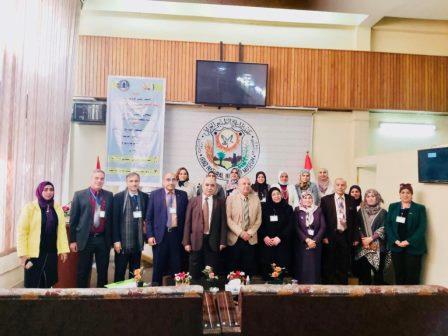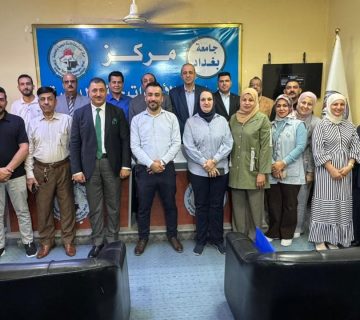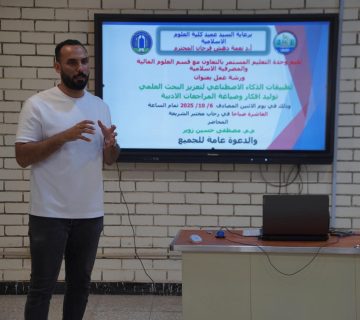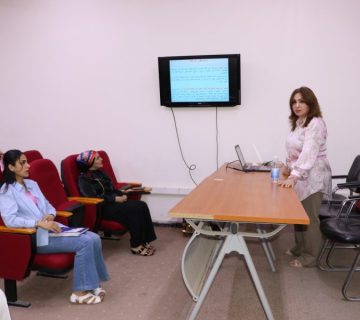The Natural History Research Center and Museum at the University of Baghdad held a scientific symposium entitled (Common diseases and their vectors in Iraq), under the slogan (Joint Scientific Cooperation Towards a Healthy Environment Free of Diseases) in the presence of the assistant rector for scientific affairs, Prof. Dr. Marwan Abdul Hamid Ashour, and the Director of the Center, Assist. Prof. Dr. Hana Hani al-Saffar.
The Chairman of the Preparatory Committee, Prof. Dr. Razak Shaalan Akil and the professors, doctors and specialists involved in publishing research and scientific posters have explained that it has become necessary for scientific and health institutions to give great attention to the control of animal and common diseases due to the great economic losses they cause as well as their impact on the public health of humans, as animals play an important role in human life as storage hosts for infection and a means of transmission for more than 200 diseases with the definition of common diseases between human beings for identifying and controlling the vectors of these diseases as part of reducing their spread. The danger of common diseases is the speed of their spread and their health effects on humans, such as food poisoning and intestinal catarrh, and sometimes they may be very dangerous or fatal if not treated in time, such as Crimean hemorrhagic fever, Rift Valley fever, rabies, anthrax, infectious encephalitis, meningitis, viral diarrhea and tetanus, including what leads to abortion as a result of wavy fever and toxoplasma. Also a presentation was provided about breeding birds and the diseases that they transmit to humans.










